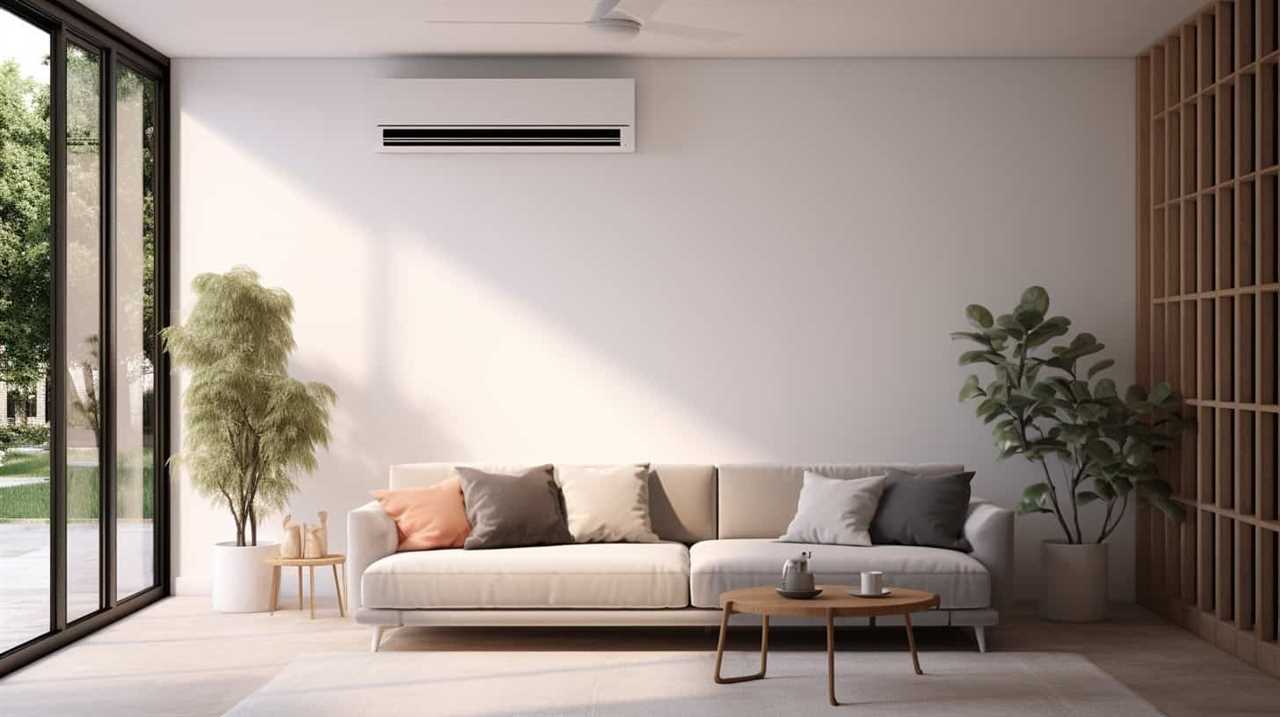Do you want to learn about how modern heat pumps are changing the game when it comes to energy efficiency? Well, we have some interesting facts to share with you!
With advancements in technology and a focus on sustainability, heat pumps are now more efficient than ever before. From saving on energy costs to reducing environmental impact, these systems are a game changer.
So, sit back and get ready to be amazed by the 12 surprising facts on modern heat pump efficiency. Let’s dive in!
Key Takeaways
- Modern heat pumps are more efficient and environmentally friendly compared to traditional models.
- The efficiency rating of heat pumps is measured by the Seasonal Energy Efficiency Ratio (SEER) and the Heating Seasonal Performance Factor (HSPF).
- Modern heat pump systems can significantly lower monthly energy costs.
- Insulation plays a crucial role in heat pump efficiency by minimizing heat transfer.
The Evolution of Heat Pump Technology
We’ve witnessed remarkable advancements in heat pump technology over the years. These evolutionary advancements have revolutionized the way we heat and cool our homes, making them more efficient and environmentally friendly.

Heat pumps have come a long way since their inception, with significant improvements in energy efficiency and performance. Today, modern heat pumps are capable of providing both heating and cooling functions, saving homeowners money on their energy bills.
But the future holds even more exciting possibilities. Researchers and engineers are constantly working on future innovations, aiming to enhance the efficiency and effectiveness of heat pumps even further. These advancements won’t only benefit homeowners but also contribute to a greener and more sustainable future.
As we eagerly anticipate these future innovations, it’s clear that heat pump technology will continue to evolve and play a crucial role in serving others and preserving our planet.
Understanding the Efficiency Rating of Heat Pumps
Let’s explore how to understand the efficiency rating of heat pumps.

When it comes to heat pumps, understanding their efficiency rating is crucial in making a well-informed decision. The efficiency rating is typically measured by the Seasonal Energy Efficiency Ratio (SEER) and the Heating Seasonal Performance Factor (HSPF).
The SEER measures the cooling efficiency, while the HSPF measures the heating efficiency. It’s important to note that higher SEER and HSPF ratings indicate greater energy efficiency, resulting in lower energy costs.
Additionally, heat pumps with higher efficiency ratings offer the benefits of zoning, allowing you to heat or cool specific areas of your home, saving energy and ensuring maximum comfort.
Cost Savings of Modern Heat Pump Systems
When it comes to modern heat pump systems, there are two key points to consider: energy bill reduction and long-term financial benefits.

By utilizing advanced technology and efficient operation, these systems can significantly lower your monthly energy costs.
Additionally, the long-term financial benefits of investing in a modern heat pump system outweigh the initial upfront cost, making it a wise and cost-effective choice for homeowners.
Energy Bill Reduction
How can modern heat pump systems help us save on our energy bills?
Here are some energy saving tips to consider when it comes to heat pump systems:
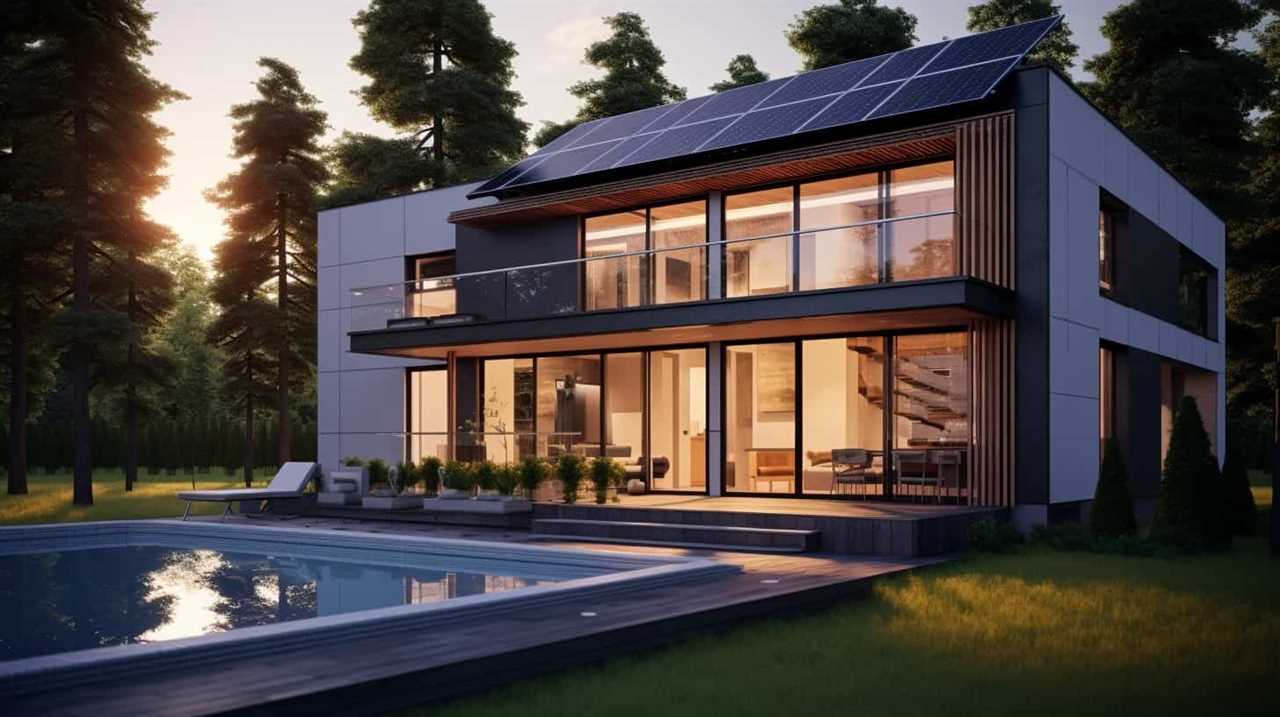
-
Regular maintenance: Ensuring that your heat pump is properly maintained can improve its efficiency and reduce energy consumption. Regularly cleaning or replacing filters, checking refrigerant levels, and inspecting the system for any leaks or damage are all important maintenance tasks that can help optimize performance.
-
Programmable thermostats: Installing a programmable thermostat allows you to set different temperature levels for different times of the day. This can help you avoid unnecessary heating or cooling when you’re not at home, resulting in significant energy savings.
-
Proper insulation: Good insulation in your home helps to keep the temperature stable, reducing the workload on your heat pump system. Insulating your walls, floors, and attic can prevent heat loss in the winter and heat gain in the summer.
Long-Term Financial Benefits
We can achieve significant cost savings by investing in a modern heat pump system and implementing energy-saving strategies. Not only do these systems provide energy bill reduction, but they also offer long-term financial benefits.

One of the key advantages is the reduced need for long term maintenance. Modern heat pump systems are designed to be durable and require minimal maintenance, resulting in lower maintenance costs over time.
Additionally, these systems offer a great return on investment. While the initial cost may be higher compared to traditional heating and cooling systems, the energy savings and reduced maintenance expenses make up for it in the long run.
How Heat Pumps Reduce Energy Consumption
By using advanced technology, heat pumps significantly reduce our energy consumption. This not only benefits us financially in the long run but also helps in reducing our carbon footprint and dependence on non-renewable energy sources.
Here are three ways heat pumps contribute to energy efficiency:

- Heat pumps transfer heat rather than generate it, resulting in lower energy usage.
- They can be powered by renewable energy sources such as solar panels or geothermal energy, further reducing their environmental impact.
- Heat pumps can provide both heating and cooling, eliminating the need for separate systems and reducing overall energy consumption.
Understanding how heat pumps reduce energy consumption is essential in maximizing their benefits. However, it’s also important to consider their efficiency in extreme temperatures, which we’ll explore in the next section.
Heat Pump Efficiency in Extreme Temperatures
Despite their high efficiency in moderate temperatures, heat pumps can face challenges when it comes to maintaining their performance in extreme weather conditions.
In cold climates, heat pump efficiency can be affected because the outdoor temperatures drop significantly. When it gets extremely cold, the heat pump has to work harder to extract heat from the outside air, which can reduce its efficiency and overall performance.
On the other hand, in hot climates, heat pump efficiency can also be compromised. The heat pump needs to remove heat from the indoor air and release it outside. However, when the outdoor temperature is already high, it becomes more difficult for the heat pump to transfer the heat effectively. This can lead to decreased efficiency and higher energy consumption.

Therefore, it’s important to consider these factors when choosing a heat pump for extreme weather conditions.
The Role of Insulation in Heat Pump Efficiency
When it comes to heat pump efficiency, insulation plays a crucial role.
Insulation not only helps in energy savings by minimizing heat transfer, but it also ensures that the heat pump operates at its optimal level.
Proper installation of insulation is of utmost importance to maximize the efficiency of the heat pump and reduce energy consumption.

Insulation and Energy Savings
Insulating our homes properly plays a crucial role in improving heat pump efficiency. By implementing effective insulation techniques and using energy efficient materials, we can maximize the benefits of our heat pump system.
Here are three ways in which insulation can contribute to energy savings:
-
Reduced heat loss: Insulation creates a barrier that prevents heat from escaping our homes during the winter, allowing the heat pump to work more efficiently and reducing the need for constant heating.
-
Minimized heat gain: Insulation also helps to keep our homes cool during the summer by blocking out external heat, reducing the workload on our heat pump for cooling purposes.
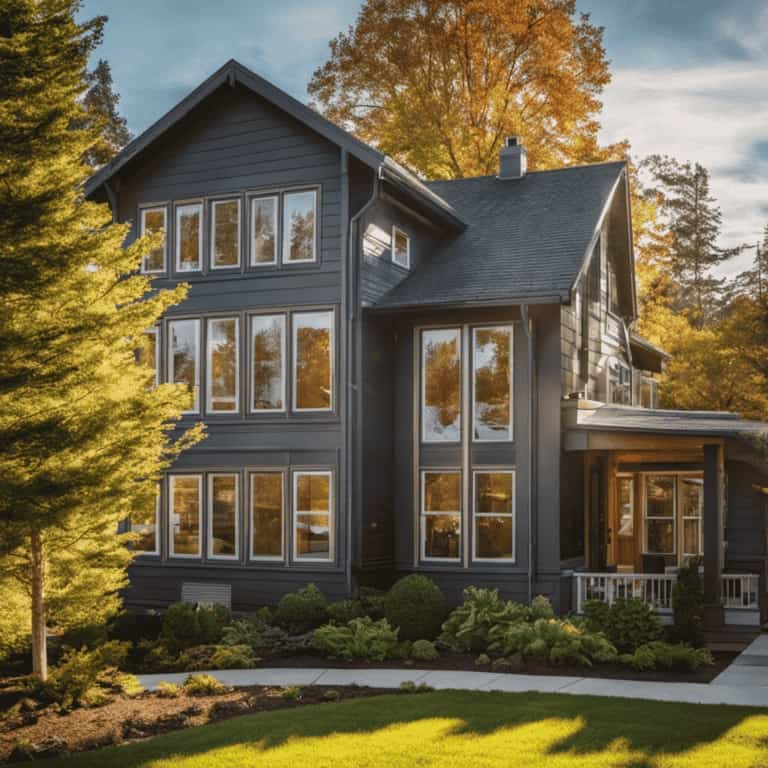
-
Improved temperature regulation: Proper insulation ensures a consistent and comfortable indoor temperature, allowing the heat pump to operate at its optimal level, resulting in energy savings.
With these energy-saving benefits in mind, let’s now explore the impact of insulation on heat transfer.
Impact on Heat Transfer
One important factor to consider in heat pump efficiency is the significant impact that insulation has on heat transfer. Proper insulation plays a crucial role in maintaining the desired temperature in a building by minimizing heat loss or gain. When heat pump installation is done correctly, insulation helps in creating a barrier that prevents heat from escaping during winter or entering during summer. This ensures that the heat pump operates efficiently, reducing the workload on the system and ultimately saving energy.
In addition to insulation during heat pump installation, regular maintenance is also essential. This includes checking for any gaps or leaks in the insulation, as well as ensuring that it’s properly sealed. By addressing insulation issues promptly, heat pump maintenance can be improved, resulting in higher efficiency and lower energy costs for the user.
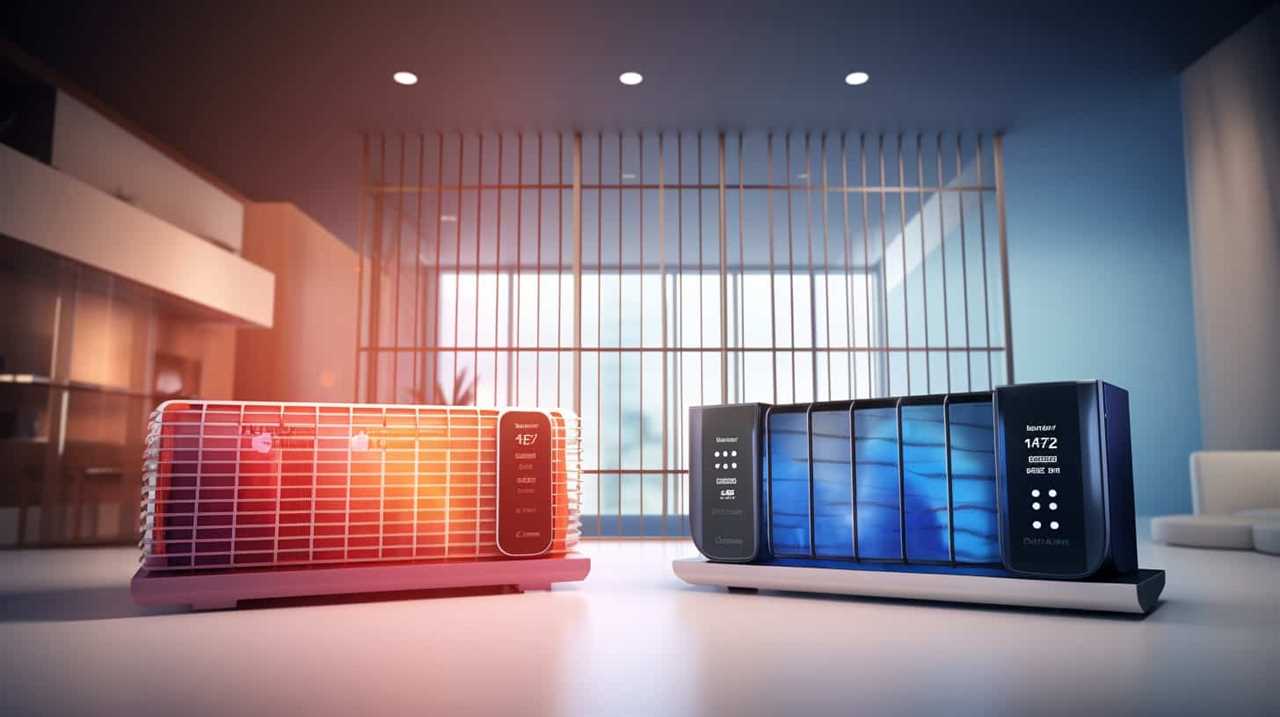
Importance of Proper Installation
We can enhance heat pump efficiency by ensuring proper installation, which includes the effective use of insulation to prevent heat loss or gain. Proper insulation plays a crucial role in maximizing the performance of a heat pump system. Here are some important points to consider:
-
Insulation prevents heat loss: By insulating the ductwork, pipes, and walls, we can minimize heat loss during the heating process, ensuring that the warm air remains inside the living space.
-
Insulation prevents heat gain: Insulating the walls and roof helps to keep the hot air outside during the cooling process, reducing the workload on the heat pump.
-
Importance of maintenance: Regular inspection and maintenance of insulation is essential to ensure its effectiveness. Damaged or deteriorated insulation should be promptly repaired or replaced to maintain optimal heat pump efficiency.
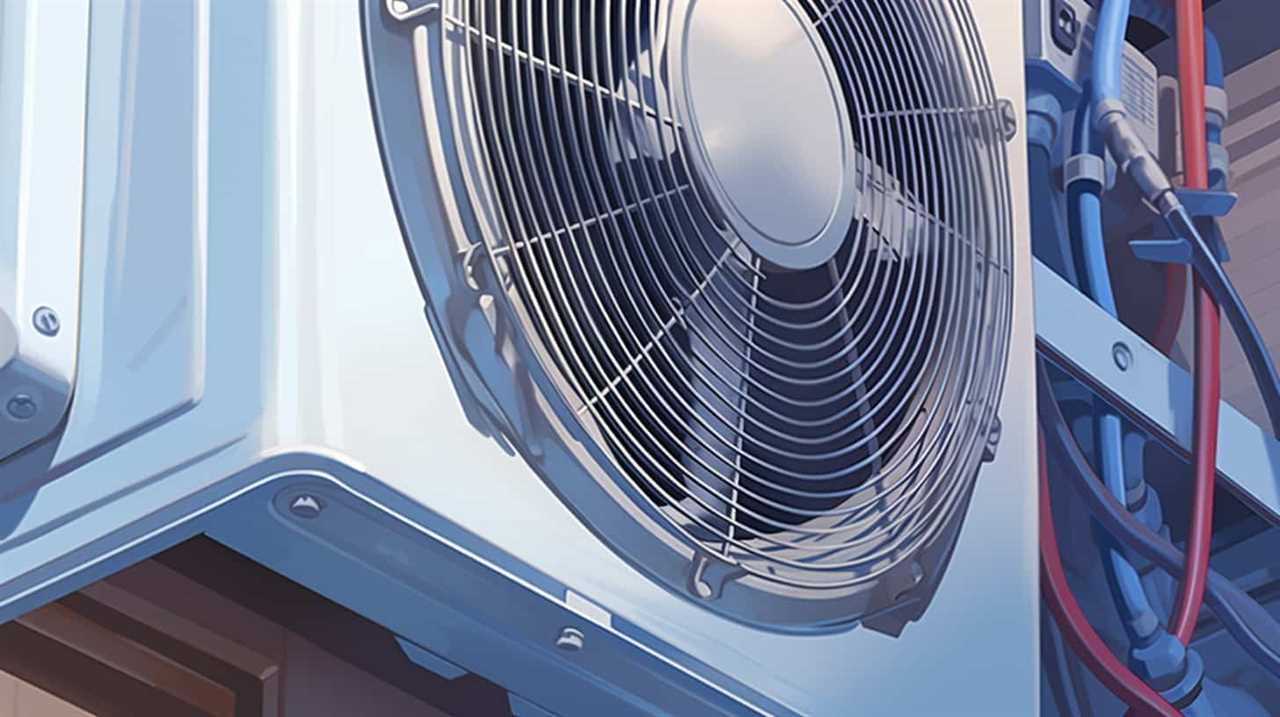
Common installation mistakes, such as improper insulation or gaps in the insulation, can significantly reduce the efficiency of the heat pump system. Therefore, it’s crucial to hire a professional installer who understands the importance of insulation and performs the installation correctly.
The Impact of Proper Sizing on Heat Pump Efficiency
When it comes to maximizing heat pump efficiency, proper sizing plays a crucial role. A heat pump that is too small for the space it needs to heat or cool will have to work harder and longer to reach the desired temperature, leading to increased energy consumption and higher utility bills. On the other hand, a heat pump that is too large for the space will cycle on and off more frequently, resulting in inefficient operation and unnecessary wear and tear on the system.
To understand the impact of proper sizing on heat pump efficiency, let’s take a look at the table below:
| Improper Sizing | Consequences |
|---|---|
| Too Small | – Increased energy consumption – Longer operating hours |
| Too Large | – Frequent cycling – Inefficient operation – Excessive wear and tear |
Proper sizing ensures that the heat pump operates at its optimal capacity, achieving maximum efficiency and performance. It is essential to consult with a professional HVAC technician to determine the right size of heat pump for your specific needs. Additionally, regular maintenance and proper ductwork installation are equally important in maintaining heat pump efficiency.

Heat Pump Efficiency in Multi-Zone Systems
Optimizing heat pump efficiency in multi-zone systems involves balancing airflow and temperature distribution throughout the different zones. In commercial buildings, it’s essential to ensure that the heat pump is performing at its best to provide optimal comfort and energy savings.
Here are some key considerations for optimizing heat pump performance in multi-zone systems:
-
Proper zoning: Divide the building into different zones based on occupancy and temperature requirements. This allows for individual temperature control and reduces energy waste.
-
Airflow management: Ensure that the airflow is balanced throughout the different zones to maintain consistent temperatures. Proper duct design and regular maintenance can help achieve this.

-
Thermostat settings: Set appropriate temperature ranges for each zone based on occupancy and usage. Programmable thermostats can help adjust temperatures automatically according to the schedule.
The Benefits of Variable Speed Compressors in Heat Pumps
One of the key benefits of variable speed compressors in heat pumps is their ability to adjust the speed of operation according to the specific heating or cooling needs, resulting in increased energy efficiency. Variable speed technology allows the compressor to modulate its speed and capacity, matching the exact requirements of the space being heated or cooled.
This advanced compressor technology provides several advantages. Firstly, it enhances comfort by maintaining a consistent indoor temperature, eliminating sudden temperature fluctuations. Secondly, it improves energy efficiency by using only the necessary amount of energy to meet the demand, reducing energy consumption and lowering utility bills. Lastly, variable speed compressors operate more quietly compared to traditional compressors, ensuring a peaceful and enjoyable environment.
Heat Pump Efficiency and Environmental Sustainability
Let’s talk about the energy-saving benefits of heat pumps and their environmental impact.

Heat pumps are known for their high efficiency, which can significantly reduce energy consumption and lower greenhouse gas emissions.
Energy-Saving Benefits of Heat Pumps
We frequently enjoy energy-saving benefits with heat pumps, as they efficiently contribute to environmental sustainability. Heat pumps are becoming increasingly popular due to their evolving technology and the numerous environmental benefits they provide.
Here are some key advantages of heat pumps:
-
Energy efficiency: Heat pumps use renewable energy sources such as the air, ground, or water to heat or cool spaces, resulting in significantly lower energy consumption compared to traditional heating and cooling systems.
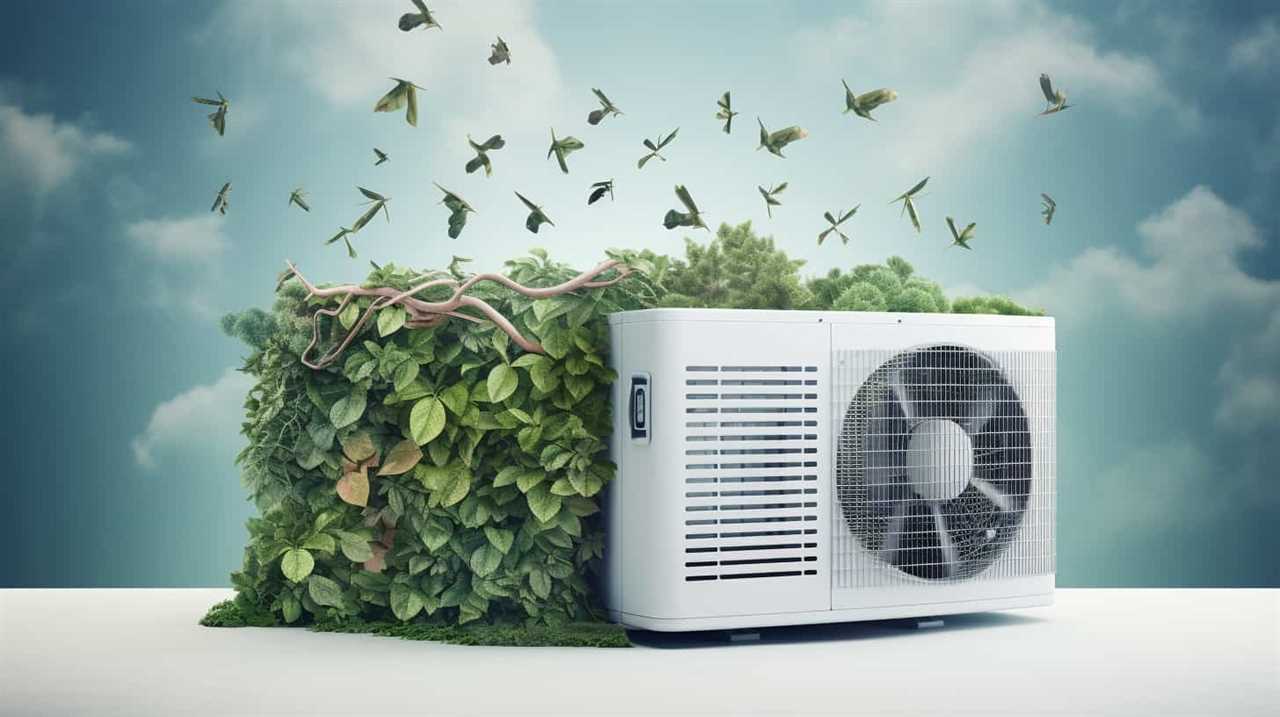
-
Reduced carbon footprint: By utilizing renewable energy sources, heat pumps help reduce greenhouse gas emissions, making them an environmentally friendly choice.
-
Cost savings: Heat pumps can save homeowners a substantial amount of money on their energy bills, as they require less energy to operate.
Environmental Impact of Heat Pumps
Our use of heat pumps has a significant environmental impact, as they contribute to both heat pump efficiency and environmental sustainability.
One of the key advantages of heat pumps is their ability to reduce carbon emissions. Unlike traditional heating systems that rely on burning fossil fuels, heat pumps extract heat from the air, ground, or water, making them a much cleaner and greener option.
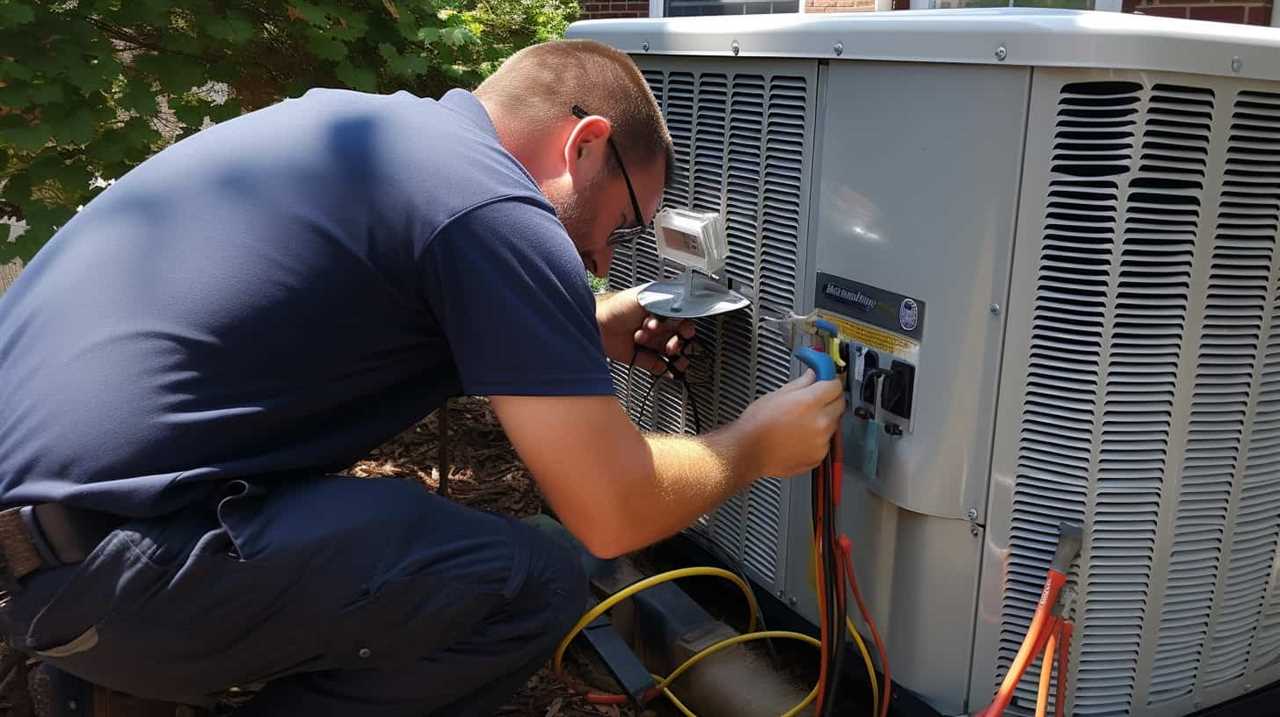
By using renewable energy sources such as solar or wind power to power the heat pump, we can further enhance its environmental benefits. This integration of renewable energy not only reduces our carbon footprint but also helps to promote the transition towards a more sustainable and eco-friendly future.
Heat pumps play a crucial role in mitigating climate change and ensuring a cleaner environment for generations to come.
The Efficiency of Heat Pump Water Heaters
Heat pump water heaters can achieve an efficiency rating of up to 300%. This means that they’re three times more efficient than traditional water heaters.
Here are some key points to consider about heat pump water heaters:

-
Heat pump water heater installation is straightforward and can be done by a professional plumber. It involves connecting the unit to the existing plumbing system and electrical supply.
-
One of the main benefits of heat pump water heaters is their energy efficiency. They extract heat from the surrounding air to heat the water, using significantly less energy compared to conventional electric water heaters.
-
Another advantage is that heat pump water heaters can save homeowners money on their energy bills. With their high efficiency, they can reduce energy consumption and lower overall costs.
With heat pump technology continuing to evolve, the future of heat pump efficiency technology looks promising.

The Future of Heat Pump Efficiency Technology
As technology continues to advance, our focus is on the development of more efficient heat pump technology for the future. We believe that future advancements and technological innovations hold great promise in improving the efficiency of heat pumps, allowing us to better serve our customers.
One area of potential advancement lies in the use of advanced materials and designs that can enhance the heat transfer process within the system. By improving the efficiency of heat transfer, we can significantly reduce energy consumption and operating costs.
Additionally, advancements in smart technology and automation can further optimize heat pump performance by allowing for real-time monitoring and adjustments based on environmental conditions.
These technological advancements won’t only benefit our customers by providing them with more efficient and cost-effective heating and cooling solutions, but also contribute to a sustainable future by reducing energy consumption and greenhouse gas emissions.

Frequently Asked Questions
Are Heat Pumps More Efficient Than Traditional Heating Systems?
Yes, heat pumps are more efficient than traditional heating systems. Heat pump technology advancements have greatly improved their performance, resulting in lower energy consumption and reduced environmental impact.
How Do Heat Pumps Compare in Terms of Cost Savings With Other Heating Systems?
Heat pumps offer significant cost savings compared to other heating systems. Their high efficiency helps reduce energy consumption, leading to lower utility bills. Additionally, heat pumps have a lower environmental impact, making them a more sustainable choice for serving others.
Can Heat Pumps Reduce Energy Consumption in Both Heating and Cooling?
Yes, heat pumps can reduce energy consumption in both heating and cooling. By utilizing advanced heat pump technology, we can efficiently transfer heat from one place to another, resulting in lower energy usage and a reduced environmental impact.
Do Heat Pumps Work Efficiently in Extreme Temperatures, Such as Very Hot or Very Cold?
Yes, heat pumps can work efficiently in extreme temperatures. They are designed to handle both very hot and very cold conditions, maximizing their performance and ensuring comfort in any weather.
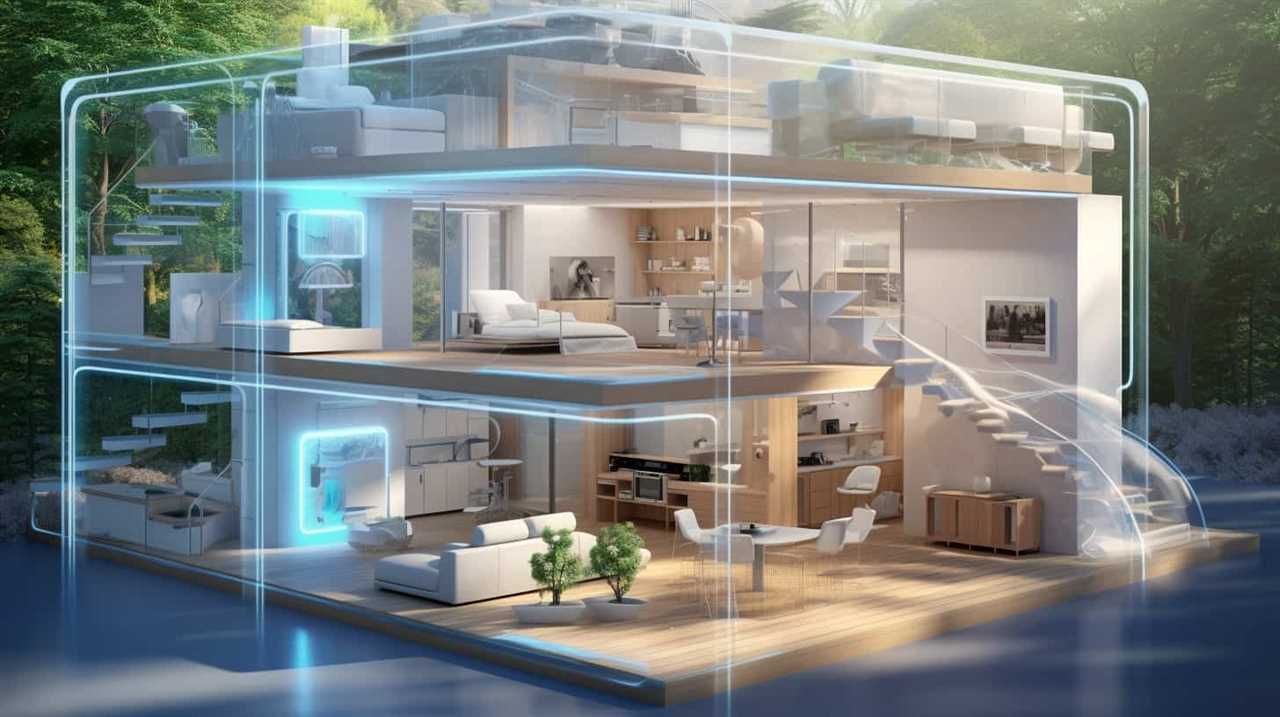
Are There Any Specific Factors That Can Affect the Efficiency of a Heat Pump, Other Than Insulation and Sizing?
Factors affecting heat pump efficiency include regular maintenance, proper installation, and climate conditions. It’s important to schedule regular maintenance to ensure optimal performance and to address any issues that may arise.
Conclusion
Well, who knew heat pumps could be so efficient? It’s almost like they’re superheroes, saving energy and money at the same time.
With modern technology and advancements, these heat pump systems are reducing our environmental footprint while keeping us cozy. It’s like having our cake and eating it too, all while being eco-friendly.
So, next time you need to heat or cool your home, consider the surprising efficiency of a heat pump. It’s a win-win for everyone.






